Last week, we welcomed four new students to Bremen and hosted a lovely dinner in the old restaurant “Ratskeller” at the city center:
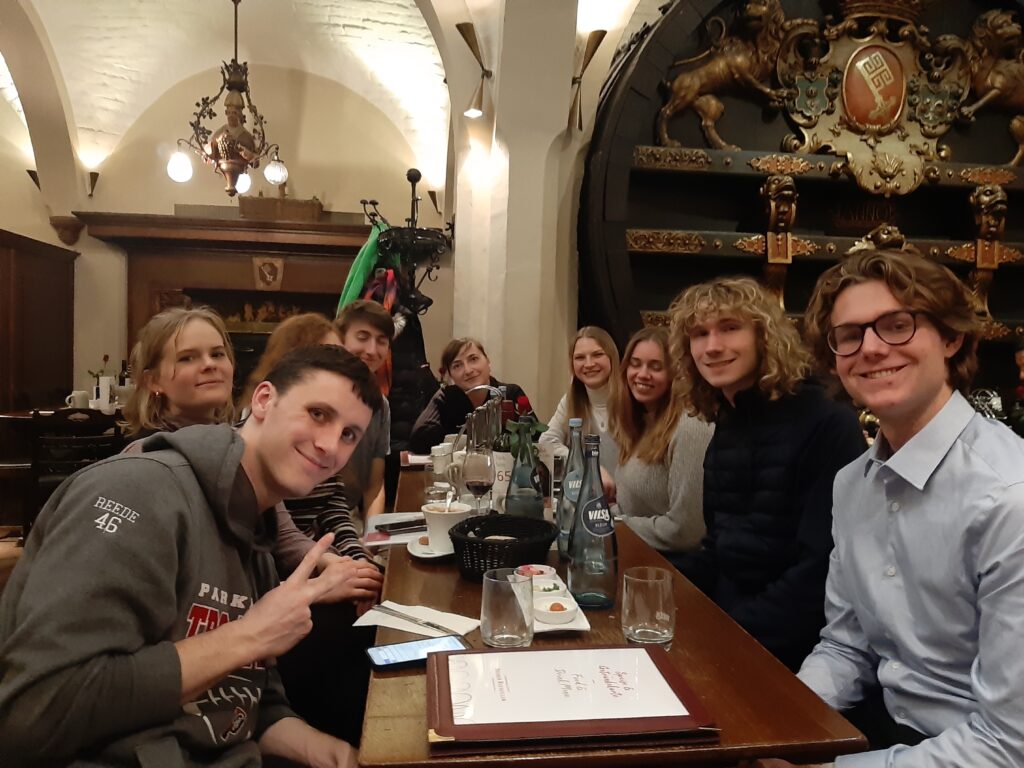
Before dinner, some students had the chance to make a wish with the famous Bremen town musicians:
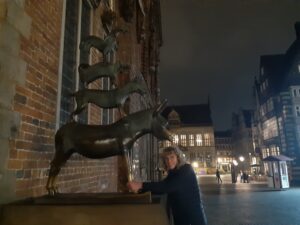
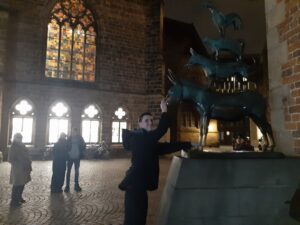

Last week, we welcomed four new students to Bremen and hosted a lovely dinner in the old restaurant “Ratskeller” at the city center:

Before dinner, some students had the chance to make a wish with the famous Bremen town musicians:


On November 29, 2002, we held the William ‘71 and Elke Durden Literary Series at Bremen, presenting a film about Ukraine called The Hamlet Syndrome at the movie theater City 46. It was a pre-premiere of a documentary that will be officially released in Germany in January 2023 and has received several awards, including the Grand Prix de la Semaine de la Critique for Best Film at the Locarno Film Festival. After the screening, Anja Quickert talked with the co-director Piotr Rosołowski.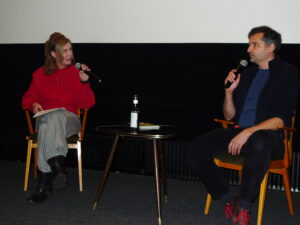
The documentary The Hamlet Syndrome (PL/D 2022) was directed by Elwira Niewiera & Piotr Rosołowski (original in Ukrainian, with German subtitles). It documented the rehearsals of the theater play The Hamlet Effect which was produced with the support of the International Heiner Müller Society.
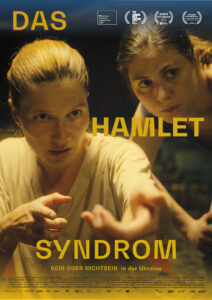 A few months prior to Russia’s full-scale invasion of Ukraine in 2022, five young women and men participate in a unique stage production that attempts to relate their war experiences to Shakespeare’s Hamlet and Heiner Müller’s Hamletmachine. For each of them, the stage is a platform to express their grief and trauma through the famous question, “to be or not to be,” a dilemma that applies to their own lives. The protagonists fight against disappointment, powerlessness, and anger, trying to put their lives back in order while processing their painful past: Slavik, who went through the hell of war and captivity as a soldier, Katia, who longs for her mother’s forgiveness for joining the army, Rodion, who escaped from Donbas and is now facing growing homophobia, Roman, who is still struggling with the traumatic memories of his experience as a paramedic on the battlefield, and Oksana, who struggles on an artistic frontline as an actress.
A few months prior to Russia’s full-scale invasion of Ukraine in 2022, five young women and men participate in a unique stage production that attempts to relate their war experiences to Shakespeare’s Hamlet and Heiner Müller’s Hamletmachine. For each of them, the stage is a platform to express their grief and trauma through the famous question, “to be or not to be,” a dilemma that applies to their own lives. The protagonists fight against disappointment, powerlessness, and anger, trying to put their lives back in order while processing their painful past: Slavik, who went through the hell of war and captivity as a soldier, Katia, who longs for her mother’s forgiveness for joining the army, Rodion, who escaped from Donbas and is now facing growing homophobia, Roman, who is still struggling with the traumatic memories of his experience as a paramedic on the battlefield, and Oksana, who struggles on an artistic frontline as an actress.
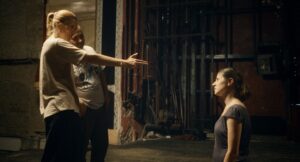
Re-enacting being blackmailed to shoot
The rehearsals of the play are combined with an intense glimpse into the characters’ lives creating a powerful portrait of the generation coping with the trauma of war which now, after Russia invaded Ukraine, is their present and future alike. The Hamlet Syndrome is a powerful portrait of a vibrant young Ukrainian generation, the first one born after the collapse of the Soviet Union, shaped by the Maidan Revolution of 2013, empowered by political change and scarred by war.
The Hamlet Syndrome (2022) Trailer: https://www.youtube.com/watch?v=lbmFWXOhn4k
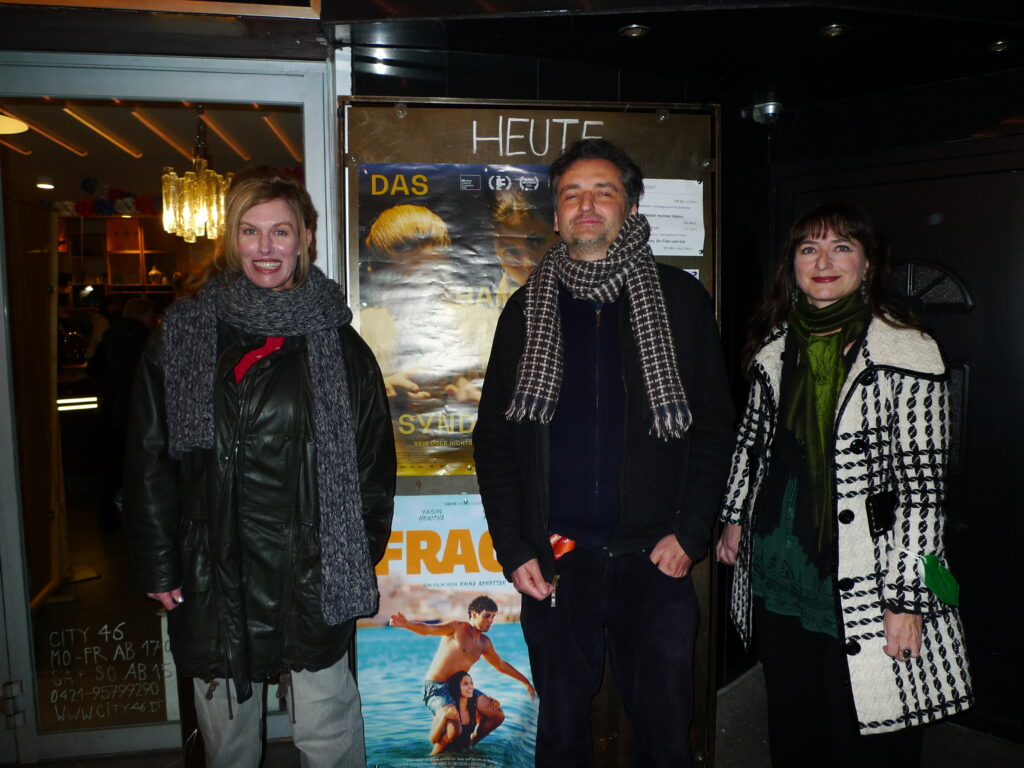
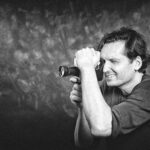 Piotr Rosołowski is a Polish director, screenwriter, and cinematographer based in Berlin. He graduated from the Katowice Film School and was awarded an Academy of Media Arts scholarship in Cologne. Co-author of Rabbit a la Berlin – Academy Award-nominated short documentary film and co-director of Domino Effect with Elwira Niewiera. Their latest documentary film The Prince and the Dybbuk won the Lion for Best Documentary on Cinema at the 74th Venice Film Festival. Piotr also works as director of photography, he shot many awarded feature and short films, among them: On the line, dir. Reto Caffi – Academy Award-nominated short fiction, The Wall of Shadows, dir. Eliza Kubarska – awarded with the annual prize of Polish Society of Cinematographers.
Piotr Rosołowski is a Polish director, screenwriter, and cinematographer based in Berlin. He graduated from the Katowice Film School and was awarded an Academy of Media Arts scholarship in Cologne. Co-author of Rabbit a la Berlin – Academy Award-nominated short documentary film and co-director of Domino Effect with Elwira Niewiera. Their latest documentary film The Prince and the Dybbuk won the Lion for Best Documentary on Cinema at the 74th Venice Film Festival. Piotr also works as director of photography, he shot many awarded feature and short films, among them: On the line, dir. Reto Caffi – Academy Award-nominated short fiction, The Wall of Shadows, dir. Eliza Kubarska – awarded with the annual prize of Polish Society of Cinematographers.
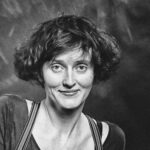 Elwira Niewiera is a director and scriptwriter born in 1976. She is the author of well-known and award-winning documentaries made together with Piotr Rosołowski, such as The Domino Effect (awarded with the Golden Horn and the Golden Hobby Horse at the 54th Krakow Film Festival as well as the Golden Dove at the IFF DOK Leipzig) and The Prince and the Dybbuk (including the Golden Lion for the best documentary on cinema at the 74th Venice Film Festival and the Polish Film Award 2019 for the Best Documentary Film). In her artistic work, she focuses primarily on political, social and cultural transformations in Eastern Europe. She is the winner of the Young German Cinema Award 2020 and the prestigious American Chicken & Egg Award 2021.
Elwira Niewiera is a director and scriptwriter born in 1976. She is the author of well-known and award-winning documentaries made together with Piotr Rosołowski, such as The Domino Effect (awarded with the Golden Horn and the Golden Hobby Horse at the 54th Krakow Film Festival as well as the Golden Dove at the IFF DOK Leipzig) and The Prince and the Dybbuk (including the Golden Lion for the best documentary on cinema at the 74th Venice Film Festival and the Polish Film Award 2019 for the Best Documentary Film). In her artistic work, she focuses primarily on political, social and cultural transformations in Eastern Europe. She is the winner of the Young German Cinema Award 2020 and the prestigious American Chicken & Egg Award 2021.
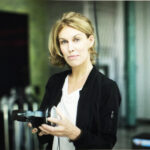 Anja Quickert lives in Berlin as a freelance writer (for Theater heute, among others). Since 2011 she has been the managing director of the International Heiner Müller Society. She curates, produces and directs theater. In 2021, she co-edited the first overview of independent venues in Berlin: Andere Räume – Die freien Spielstätten in Berlin and is a member of the DFG research group “Krisengefüge der Künste.”
Anja Quickert lives in Berlin as a freelance writer (for Theater heute, among others). Since 2011 she has been the managing director of the International Heiner Müller Society. She curates, produces and directs theater. In 2021, she co-edited the first overview of independent venues in Berlin: Andere Räume – Die freien Spielstätten in Berlin and is a member of the DFG research group “Krisengefüge der Künste.”
This event of the “William ‘71 and Elke Durden Literary Series at Bremen” was organized by the Durden Dickinson Bremen Program at the University of Bremen, in cooperation with the International Heiner Müller Society, RFF – Real Fiction Filmverleih e.K. and Kommunalkino Bremen e.V. / City 46. The evening was supported by Dickinson College, Pennsylvania, USA, and by William G. and Elke Durden, whose generous donation we gratefully acknowledge.
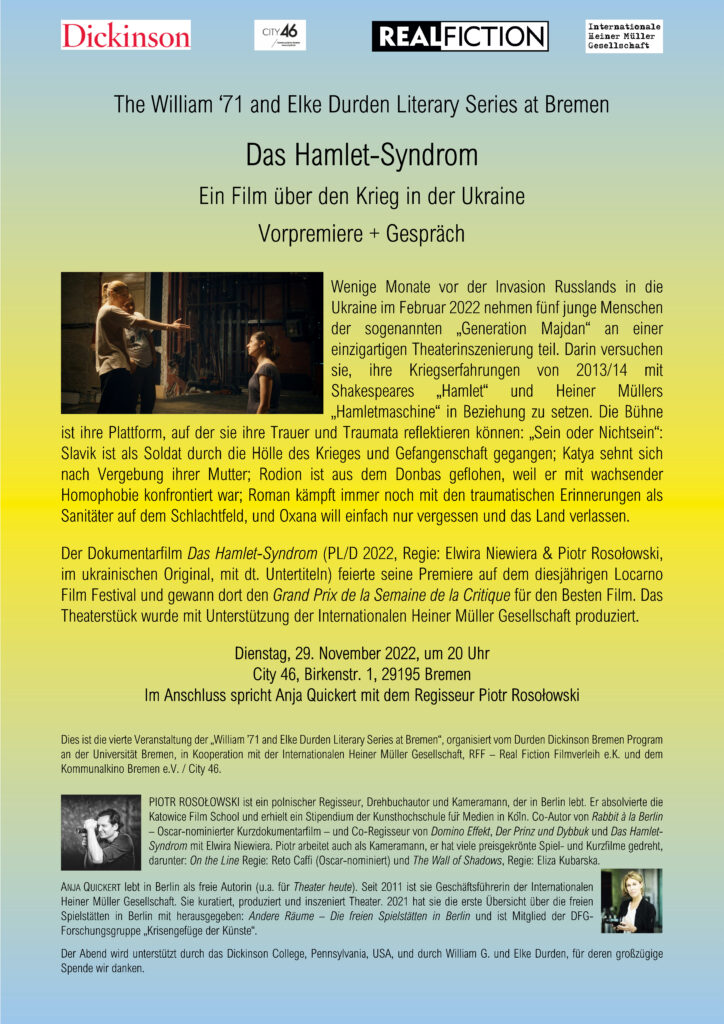
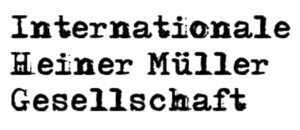


Amidst international turmoil, we held our annual Christmas party again in the Dickisnon Room. However, this year, we did not perform the traditional “Julklapp” (giving each other gifts), but packed Christmas bags for children in Ukraine. The initiative was started by the Evangelical Church Community St. Markus in Bremen, organized by pastor Andreas Hamburg.
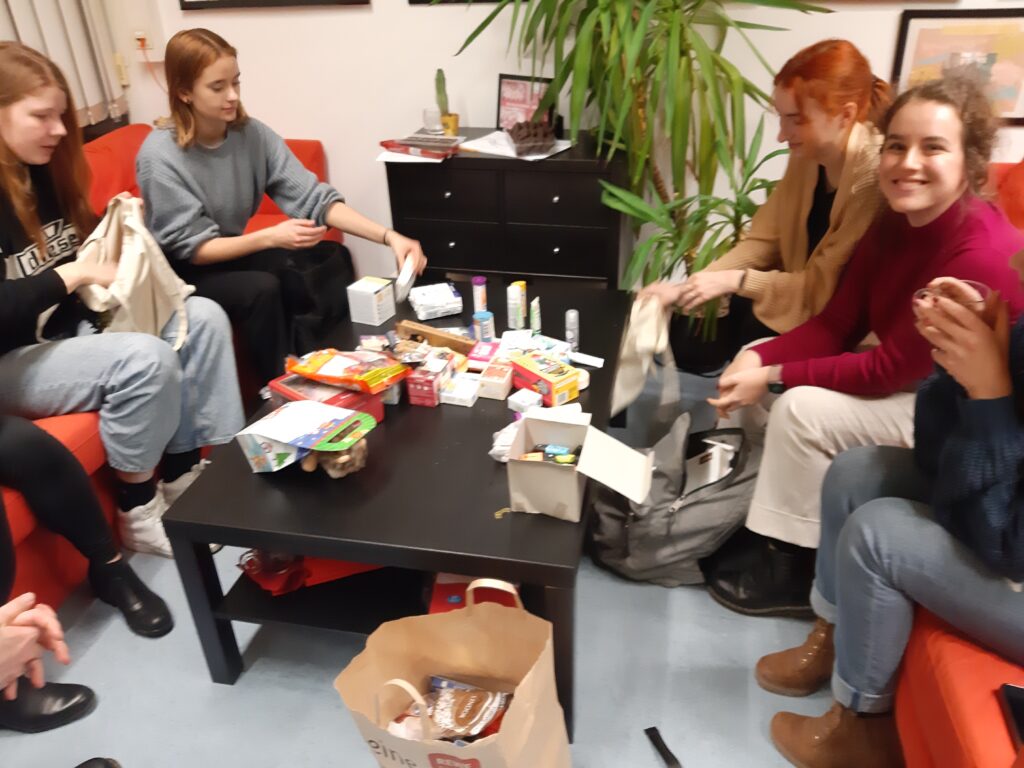
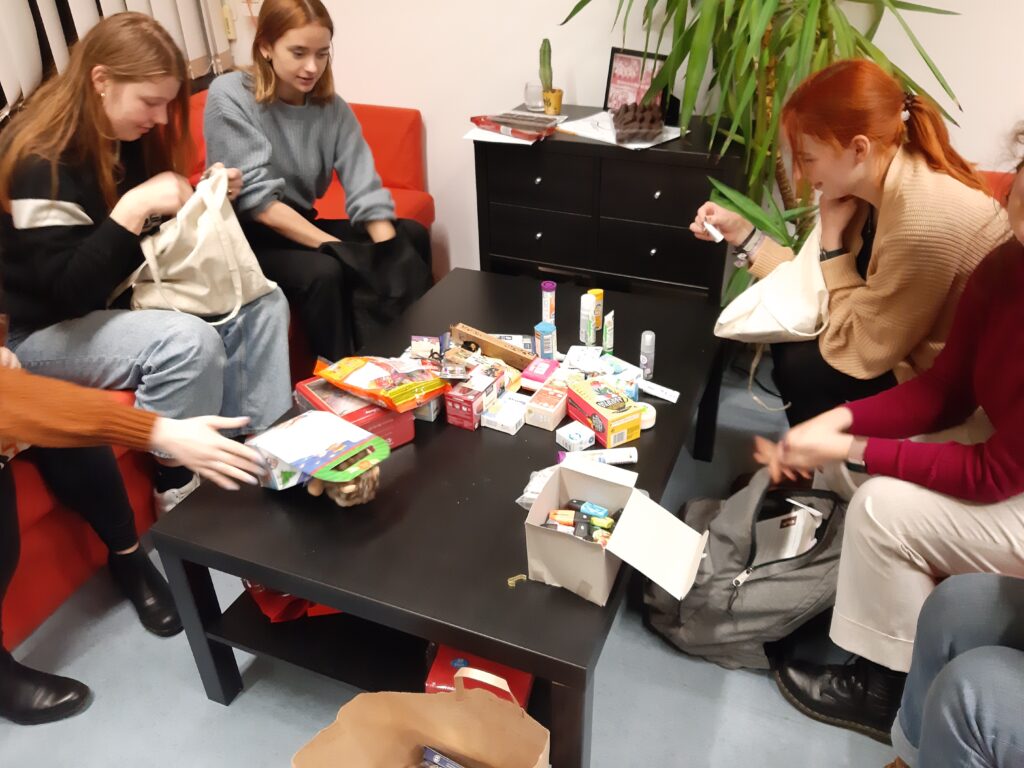
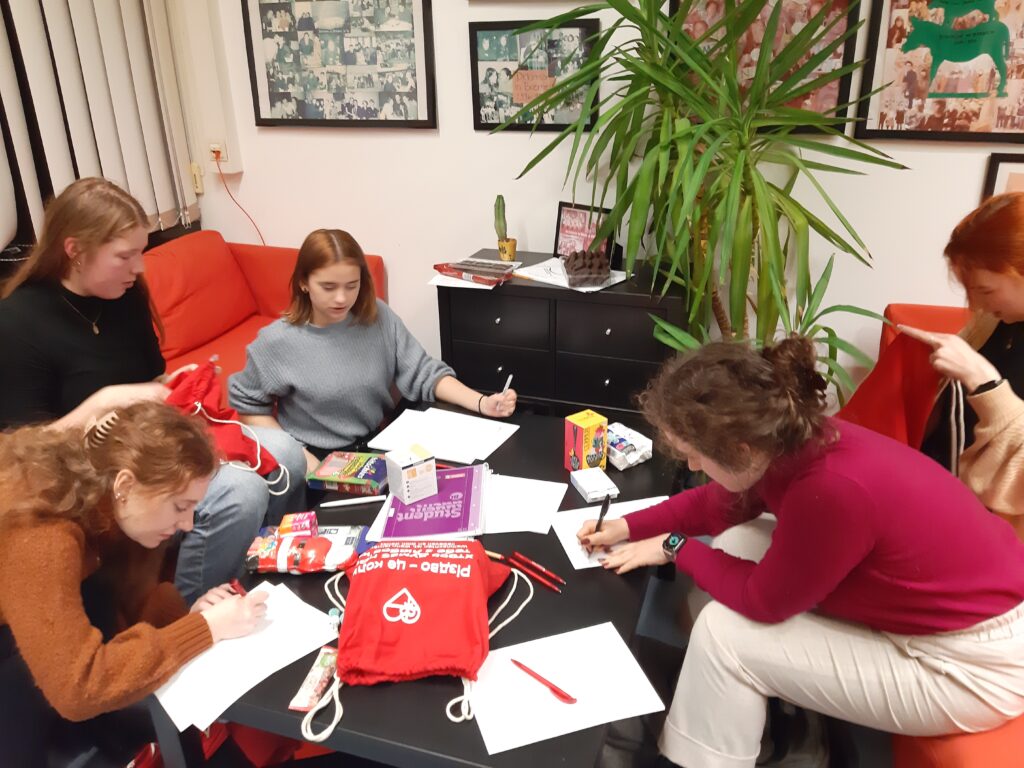
Students writing lists of contents and a Christmas message in Ukrainian
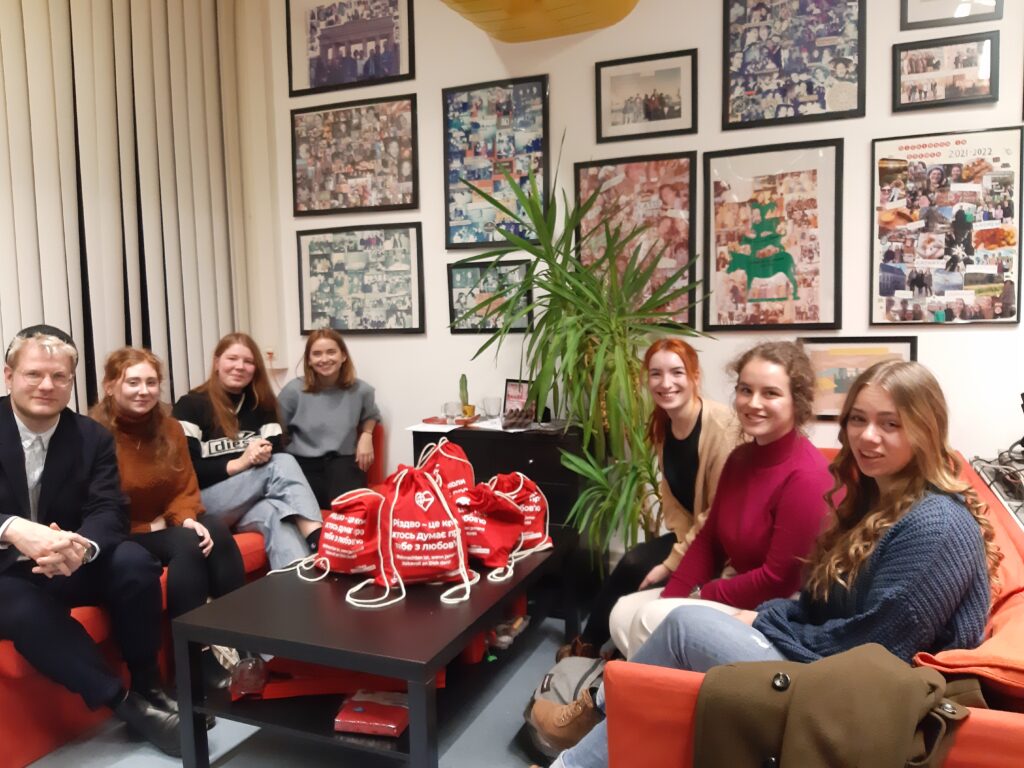
As every year, we were happy to celebrate Thanksgiving with the Carl Schurz German-American Club in Bremen in a festive atmosphere…
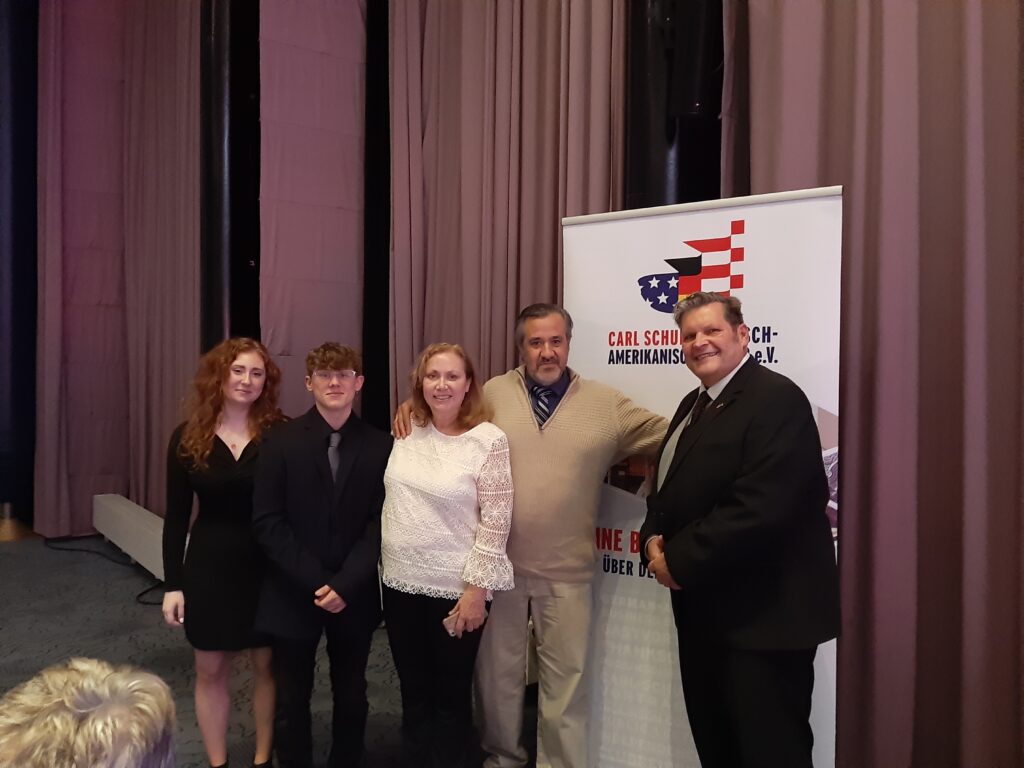
Our student Vasilisa with her family and the President of the German-American Club, Ulf-Brün Drechsel
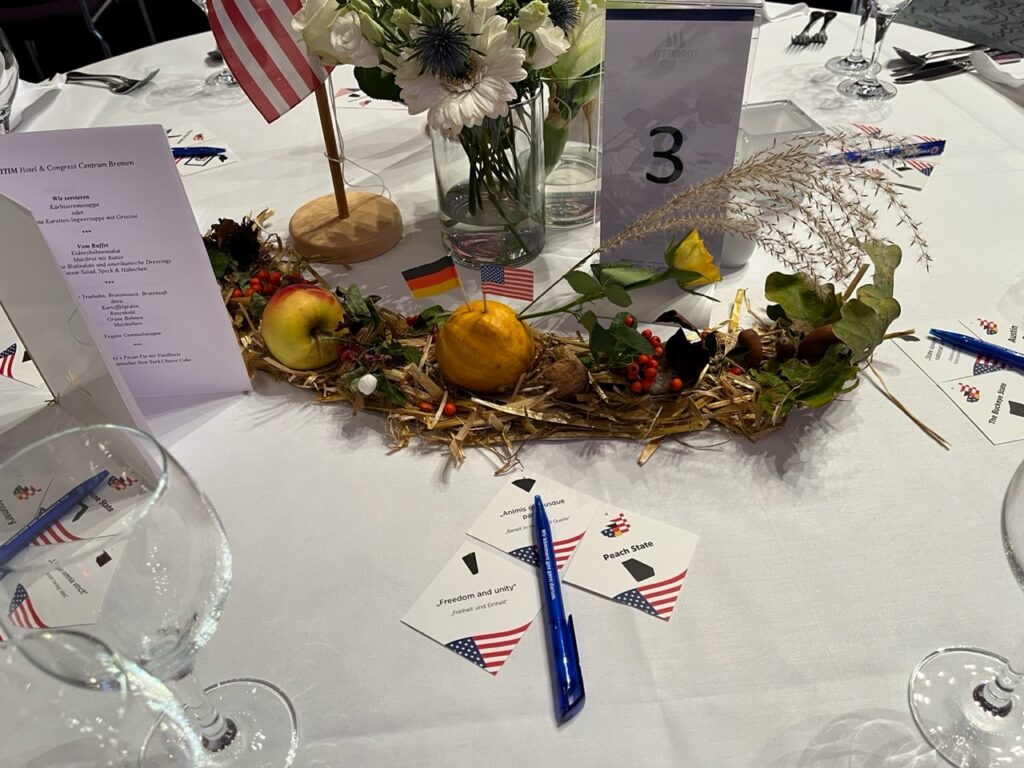
Thanks to everyone for a wonderful evening and a great meal!
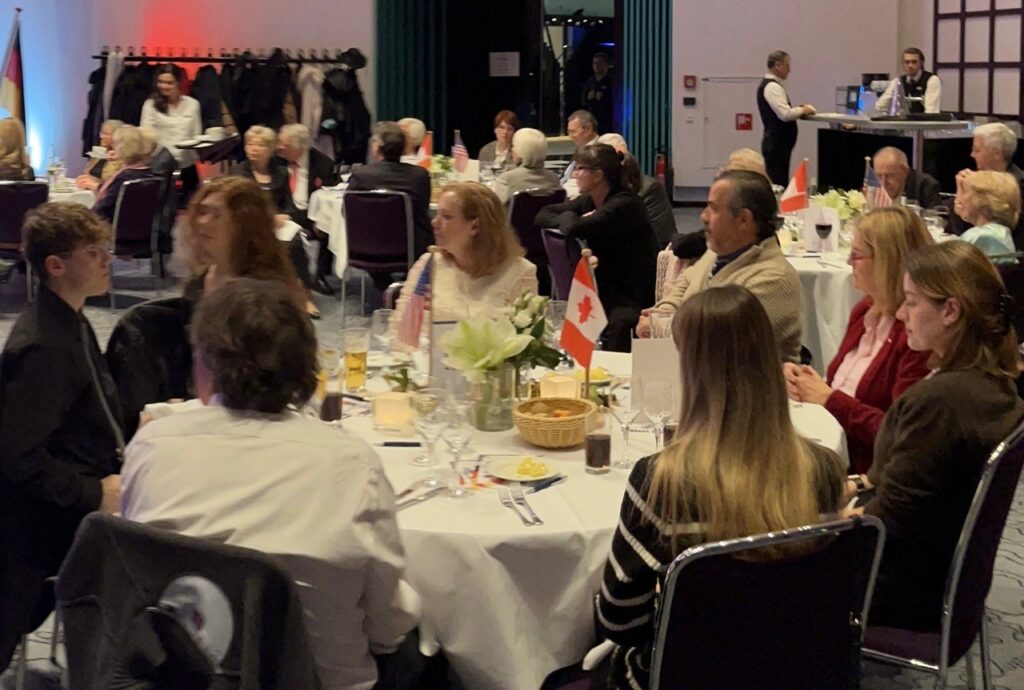
Listening to a welcome speech before dinner
by Mia Siemers
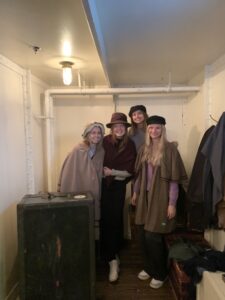
Students as emigrants
Our course “Comparative Cultures–USA/ Germany” went on a trip to the “Auswandererhaus” (Emigration Center) in Bremerhaven. In the beginning, each of us received a biography from one of the immigrants who travelled from different cities to the United States. As the tour continued, we got more information about their crossing as well as their lives in a foreign country. The guide told us a variety of interesting aspects and facts from 1620 to the present. We were able to get an insight into the history of immigration due to a multimedia exhibition. Over all, it was a great experience with lots of new knowledge and laughter.
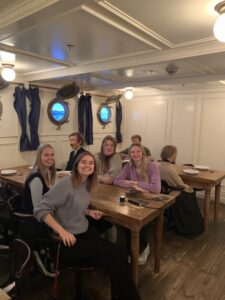
On the transatlantic ship passage
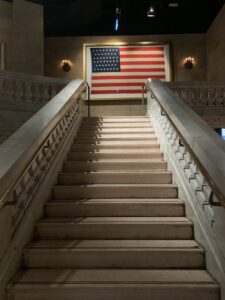
The final destination
by Dr. Janine Ludwig
November started with a wonderful visit from our colleague, Prof. Alyssa DeBlasio, Associate Professor and John B. Parsons Chair in the Liberal Arts and Sciences in the Russian Department at Dickinson College.
She was invited to the annual literary festival globale° (http://globale-literaturfestival.de/) at Bremen to participate in a panel discussion on November 5, 2022 under the title “Literature and Science in Times of War” (https://globale-literaturfestival.de/05-11/). The in-depth discussion centered around questions of how Russian studies and Slavic Studies in general should react to the Russian War on Ukraine, among them: Should one cancel or re-evaluate certain pieces of art or literature? How does the present influence our ways of looking at the past and its cultural products? Prof. DeBlasio made the important suggestion to de-center Russian studies from Moscow, meaning to acknowledge all the Russian-speaking people and cultures outside of a Moscow-centered narrative which needs to be critically evaluated. Oxana Matiychuk, a Ukrainian German philologist at the University of Tscherniwzi/Czernowitz, corroborated this with regard to Spanish studies which are not focused on Spain alone and German Studies which should not uncritically coopt Swiss or Austrian authors, for example.
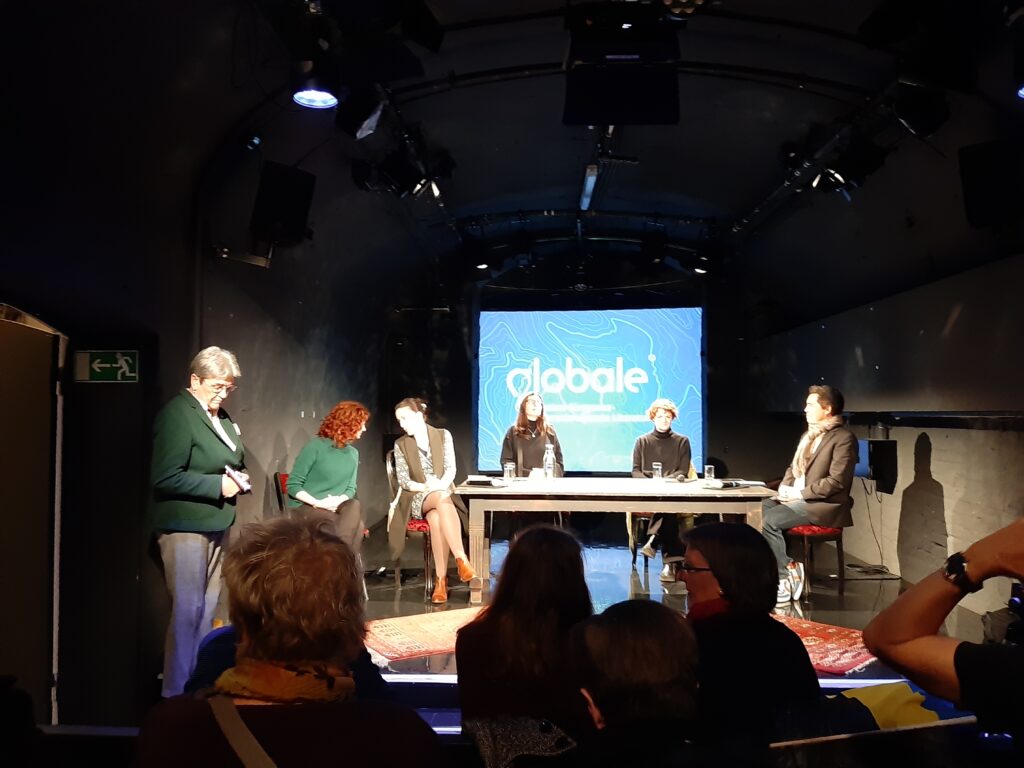
From left to right: Libuše Černá (Head of the globale° Literature Festival), Merle Meyer interpreting for Alyssa DeBlasio, Oxana Matiychuk (Chernivtsi National University), Gun-Britt Kohler (University of Oldenburg), Simon Lewis (University of Bremen)
Thankfully, Prof. DeBlasio had already been preparing for some years, together with Izolda Savenkova, a textbook to do exactly this: ПРО-ДВИЖЕНИЕ: Advanced Russian Through Film and Media. Forthcoming with Georgetown University Press, 2022.
The invitation occurred via a nice Dickinson connection which underscores the depth and impact of the long-lasting partnership between Bremen and Carlisle through our exchange program: Two former students of the University of Bremen, Merle Meyer and Daniel Schmidt, who had studied abroad at Dickinson College, were part of the organizing team of the globale°. Daniel, who had taken a class on “Philosophy and Literature” with Prof. DeBlasio, invited her to contribute a text on the letter “Z” for an event at the Bremen Theater in March (https://www.theaterbremen.de/de_DE/wort-ergreifen-2) and then invited her to the globale°. Maybe this can be seen as a reminder of how important international communication and cooperation still is – these days more than ever.
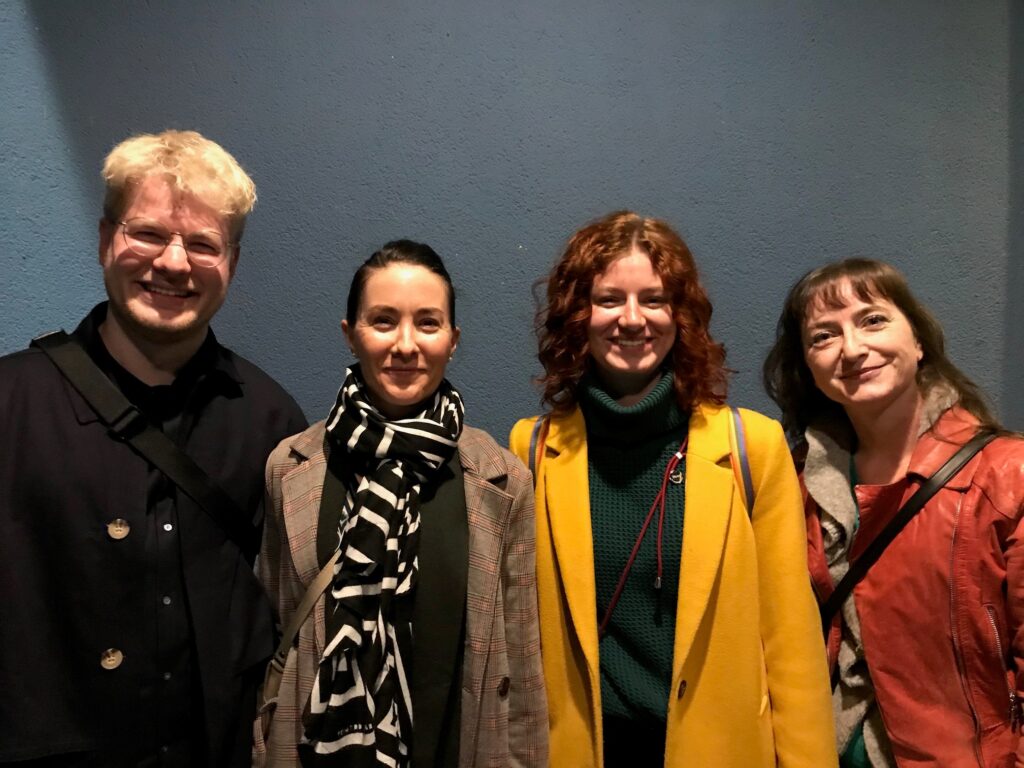
Daniel Schmidt, Alyssa DeBlasio, Merle Meyer, Janine Ludwig (from left to right)
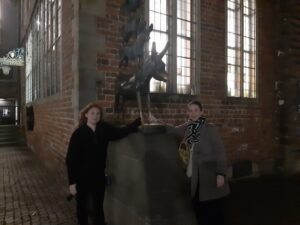
Vasilisa Pallis, student of German and Russian Studies, currently studying in Bremen, with her professor DeBlasio at the statue of the Bremen Town Musicians, making a wish
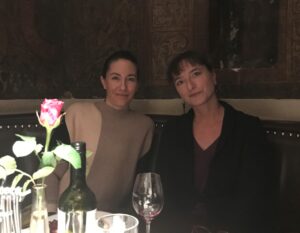
Alyssa DeBlasio and Janine Ludwig at the Bremer Ratskeller
After a Covid pause, soon we will go to Poland again – exciting! 🙂
Music: www.bensound.com
Music: www.Bensound.com
Fresh from our post-production office, the GISEB 2022 video has finally arrived! 😉 Come have a look!
Music: www.Bensound.com
by Nick Rickert ’23
Last week Evan and I were delighted to attend Theater Bremen’s performance of the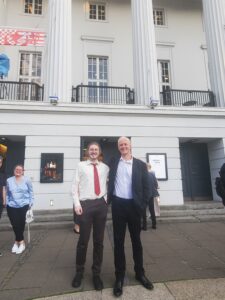 classic German musical play “Die Dreigroschenoper” (The Threepenny Opera), written by Bertolt Brecht with music composed by Kurt Weill and first performed in Berlin in 1928. This was our first time attending a theatrical performance in Bremen. Having only read a brief synopsis of the narrative beforehand, we came to find that the production was much less of what one might expect from an opera but rather a musical supported by a modestly sized jazz ensemble (with no conductor!). I wouldn’t call myself an avid musical goer, but I was enthralled by the lively assortment of characters and fantastic music.
classic German musical play “Die Dreigroschenoper” (The Threepenny Opera), written by Bertolt Brecht with music composed by Kurt Weill and first performed in Berlin in 1928. This was our first time attending a theatrical performance in Bremen. Having only read a brief synopsis of the narrative beforehand, we came to find that the production was much less of what one might expect from an opera but rather a musical supported by a modestly sized jazz ensemble (with no conductor!). I wouldn’t call myself an avid musical goer, but I was enthralled by the lively assortment of characters and fantastic music.
Adapted from an 18th-century English ballad opera, “Die Dreigroschenoper” tells the precarious love story between the antihero Macheath (Mackie Messer), a prominent gangster, and Polly Peachum, whose father controls the beggers of London and is determined to put Macheath in prison after the two become married (not to mention tying the knot just days after meeting for the first time!). I was immersed as soon as the curtains opened silently to reveal a rugged wooden floor with a steep slope and the beggars laying in darkness.
 I was stunned by the singing voices of Polly and Macheath, whose dialogue and ballads easily stole the stage whenever they appeared. In between these moving scenes Evan and I couldn’t help but chuckle at every move of the corrupt chief of police “Tiger” who broke the fourth wall by having a short interaction with the drummer, breaking one of their cymbals. I also found it heartwarming that since it was the last performance of this production, the director bade thoughtful farewells to several cast members leaving the theater company. Later that evening I couldn’t help but hum ‘Die Moritat von Mackie Messer’ to myself.
I was stunned by the singing voices of Polly and Macheath, whose dialogue and ballads easily stole the stage whenever they appeared. In between these moving scenes Evan and I couldn’t help but chuckle at every move of the corrupt chief of police “Tiger” who broke the fourth wall by having a short interaction with the drummer, breaking one of their cymbals. I also found it heartwarming that since it was the last performance of this production, the director bade thoughtful farewells to several cast members leaving the theater company. Later that evening I couldn’t help but hum ‘Die Moritat von Mackie Messer’ to myself.